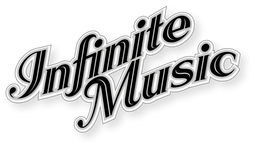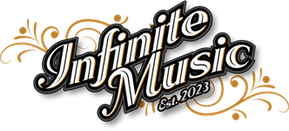How Important Are Music Books and Who Needs Them?
Posted by ROB LAMBERTI

If you’re looking for a quick and easy yes or no answer to this question, then I’m sorry to disappoint you, there is no simple answer.
For many people, music is something that is so deeply ingrained in them, that it feels like you can’t possibly teach someone that passion and heart through a book. For others, books are an essential tool that allows them to perfect their craft and share this with others.
So do you need to use a music book to become a great musician? No.
Can music books be an essential tool to helping people hone their skills and grow as musicians? Yes.
In this guide, we are going to explore the importance of music books, and who exactly needs them.
Music Theory
To start, let's take a look at Music Theory. Many music books are made to basic concepts of music theory, such as how to read and write sheet music.
If you’re wondering what music theory is, it is a practice that musicians use to understand and communicate the language of music.
It allows us to understand the structure behind musical compositions, as well as providing a way to interpret music.
This fundamental knowledge is important for musicians to understand in order to create and write music, and allows musicians to easily communicate with each other.
Just like any other language, if you don’t understand it, it would be impossible to speak in it.
A deep understanding of music allows you to read, write and memorise music in a way that is incredibly important for any performer or composer.
And while not every musician will have a formal education on music theory, every musician has a working understanding of it.
There are some big name musicians, such as David Bowie, Elton John and Jimmie Hendrix who never had any formal training, and became legendary names in the industry.
The important thing to understand is that while they may not have ever had a formal education on music theory, they did understand what music theory was. They knew how to identify harmonies, and rhythm, and could effectively communicate this to others.
If you sat them down to do a quiz, they might not have passed, but they certainly could prove their knowledge where it counts - playing and creating music.
Tackling different learning styles
We 100% get that all you want to do is start jamming and playing your instrument. Unfortunately, we can’t all be immediate rock gods from the second we touch a guitar.
Some of us have to do a little thing called book learning before we can begin the journey of mastering music.
However, regardless of your natural affinity towards music and playing an instrument, there are some basic fundamental concepts you need to understand about music theory if you want to be a successful musician.
There are many different ways in which you can learn, and each individual has their own preferred learning style.
Some people thrive learning things by reading from a book, some people need to hear it explained to them, and others need to do it themselves in order to practically understand it. Most people need a combination of all three.
Playing an instrument is a very hands-on experience, and so often the best way to learn is by playing around with your instrument and seeing what works.
Music books are a great tool, especially in schools, to teach students how to read music scores, as well as understanding basic ideas like melodies, scales and chord progressions.
Not all genres are made equally
The importance of music books and even written out sheets music varies from genre to genre, and from experience levels.
Classical music requires very precise playing, that often requires a sheet of music in front of you at all times, to ensure you don’t miss a single note. Much of modern music theory is based on what classical composers such as Beethoven were doing at the time, so it makes sense that it’s even more important for classically trained musicians to understand this theory in a more formal sense.
For other genres, like Indian Music or even some forms of Jazz, a formal understanding of music theory can often be less important, as it’s based more on the tones and emotions achieved (which you could argue is a form of music theory!).
Music Books for schools
So what’s the conclusion to all of this? Like I said at the start, there’s basically no right or wrong answer and it’s down to personal preference and music style.
If you want to really dig deeper into creating new sounds and understanding intricacies of composing music, then learning music theory is going to help you achieve that.
Learning to read music and understand these theories is important for anyone wishing to pursue a musical career.
If you’re more interested in music as a hobby, you probably won’t need as much in depth of an understanding of these concepts.
Most professional musicians understand music theory, whether they’ve learned it through studying from a book or through their experiences creating music.
Music books are important, and are a great tool for teachers at schools, which is why we often supply books to local Sunshine Coast schools.
If you want to explore our selection of books, or browse the various instruments, you can visit our online store here.
We offer music lessons for nearly every instrument, and are always happy to talk about all things music.
And if you come down to our Nambour shop, we can talk about music theory until your ears bleed!


